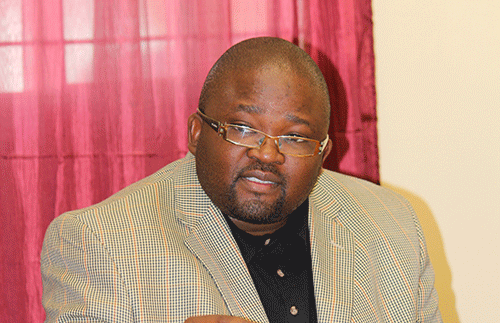The leadership of Swanu of Namibia this week paid a courtesy call on President Hage Geingob to present and highlight some areas of concern that deserve collective national attention.
The courtesy call was part of the consultative meeting that occurred on Monday at State House.
Most of the challenges highlighted by the oldest political party in the country were the Namibia educational system, public debt, natural resources, and agriculture management for food self-sufficiency, unemployment, land and genocide issues.
On public debt, the president of Swanu Tangeni Iijambo explained that Namibia’s level of debt has reached an unprecedented level and will further fuel the scourge of poverty, unemployment and inequality.
He said the public debt is projected to rise to N$140 billion in 2022/23 financial and will remain at an increasing level over the medium-term expenditure framework (MTEF).
“The main concern here is that the external debt is way above the benchmark as a percentage of GDP,” he said.
He said it has been witnessed in some African countries that loans from some countries come with heavy conditions where some of the national assets in the country are attached as conditions on the loans.
“Should that be the case in Namibia, it will be detrimental to our beautiful country, as our sovereignty will be compromised and our political and economic decision-making will be in the hands of the Bretton Wood Institutions (the World Bank and the International Monetary Fund). Our country will remain a perpetual debtor to those who are granting us these loans,” he warned.
He further warned that high public debt would always lead to an increase in interest that will increase the cost of borrowing to the citizens.
Swanu recommended that all the loans from the IMF, World Bank and other friendly countries should be critically analysed.
“The main objective of government borrowing should be to ensure that the government financing needs and its payment obligations are met at the lowest possible cost over the medium to long term which is consistent with prudent degree risk,” he said.
Iijambo said there is a need to broaden the tax base, as there are a lot of industries that are excluded from the tax net.
“NamRA should play the well-intended role of its creation and identify those businesses that shirk their tax obligation. Similarly, large mining houses should be compelled or made to pay what is due to the Namibian people, through the prevention of transfer pricing and other creative accounting practices. This will increase the revenue and reduce the debt burden,” he indicated.
Iijambo described the meeting as a success as the President has prioritised them to deliver their well organised document to State House.
“After delivering our statement, the President, through his economic advisor, made a presentation on the green hydrogen. Based on the presentation, green hydrogen is a good project but it is very costly,” he explained.
– ljason@nepc.com.na


